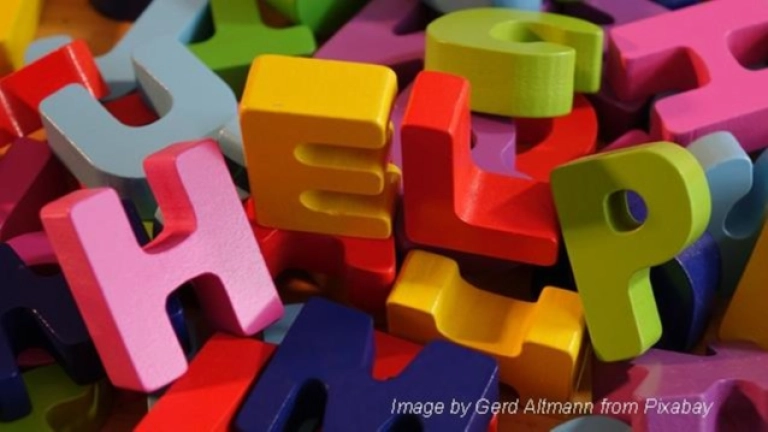- Monday 19th May 2025 / 09:56
- Log In
- Contact Us

WHY ARE WE ALTRUISTIC?
A Natural Call
There is more into doing good than you might think. Whether it's from a philanthropic spark of the moment that you decide to donate to a local charity, or from volunteering for those less fortunate, the truth is that the undercurrent of altruism has been running through you since birth.
When does it start?
Altruism, a foundation for doing good, is the motivational intent of increasing the welfare of others, even if it can be at the consequence of your own. According to a study by Megan M. Filkowski, Ph.D. and others, signs of altruistic intent have been noted in infants as young as 14-18 months through behaviors such as helping other infants grasp out-of-reach objects or opening cabinet doors, with no adult encouragement or supervision. Other minor acts of kindness fall under the scale of altruism, such as offering your seat to an elderly individual on the bus or holding the door open for others – acts which hold no particular benefit or reward to you. Despite this lack of reward or clear incentive, there lies a reason behind altruistic, prosocial action and its unsolicited appearance in youth.
Chemically Speaking
Among 60 chemical elements or so in our body, one stands out for altruism. Dopamine is an organic chemical synthesized in the brain and kidneys, and is often associated with a sensation of reward and satisfaction. While these feelings are often elicited through base motivations such as fulfilling food cravings and other forms of gratification, research has found that the very act of doing good for others is capable of evoking dopamine. In a study by William T. Harbaugh, Ph.D. and others, volunteers were placed in an fMRI while tasked with playing the “dictator game” – a test in which participants will be given a sum of money, and in certain stages be tasked with either voluntarily or mandatorily donating money to a food bank. Any money they reserve will be theirs to keep. Harbaugh found that during these donation stages, parts of the nucleus accumbens – a part of the brain responsible for emotions including sensations of reward – would activate. Those who would voluntarily donate a larger sum of money--entitled altruists, than those who donated little to none--entitled egoists, saw significantly greater activity within the nucleus accumbens. This activity indicated a greater rush of satisfaction and in turn, dopamine. Those who experienced greater activity would go on to donate more throughout the entire experiment in response to this sensation.
Cell Longevity
There is, however, more to altruism than the sensation of satisfaction. Within a journal published by Stephen G. Post, Ph.D., lies a multitude of accumulated studies and research which correlates stress and altruism to longevity. Post found over a collection of studies that the beneficial sensations evoked by altruism are able to overpower other sensations, such as fear, depression, hate, and anxiety. The benefits that altruism poses offset a number of emotions that cause stress that, if long-lasting, can shorten telomere length. Telomeres are protective caps at the ends of chromosomes that prevent DNA deterioration, thereby acting to extend cell longevity. Stress also adversely impacts the immune and cardiovascular systems, resulting in greater degradation. Through the positive effects of doing good, one can altogether distract the body from the harmful stress associated with age or other detrimental factors and experience a happier, longer, and more fulfilling life.
The Loop
This poses the question: is there such a thing as pure, unselfish altruism where there is no personal good gained from voluntary good deeds? The short answer is no, yet the selfishness of altruism is one that ought to be celebrated and put into practice. By effectively practising altruism for the purpose of helping others, you will inadvertently be doing good unto yourself, both extending and enriching your own life. With less stress, greater amounts of dopamine, and a healthier life, you will be able to continue to fuel your motivation for altruistic good deeds and in turn, be able to continue helping others. The happiness you feel when doing good will result in greater happiness, which will entice you to do more good. What results is a classic feedback loop of consistently doing good for those in need.
Armed with this knowledge, you have all the reasons you need to get out there and do good. Embrace the altruist within you, and not only will you be granting others a better life in ways big or small, but you will also be bettering your own life, too.
Keep an eye out for next week's article, where we'll have more to say on what makes a doin' gooders who they are.
Have something to add, or want to give us feedback? We will be happy to hear from you, just click the icon in the bottom right.
TALK TO US
- Popular
- Recent
- Most Viewed
- SUFFOLK WILDLIFE TRUSTSuffolk £ 1 M - £ 10 Mhttps://www.suffolkwildlifetrust.org/
- CITY HARVESTLondon £ 1 M - £ 10 Mhttp://www.cityharvest.org.uk/
- CHANCE TO SHINE FOUNDATIONLondon £ 1 M - £ 10 Mhttps://www.chancetoshine.org/
- Good Things FoundationSheffield £ 1 M - £ 10 Mhttps://www.goodthingsfoundation.org/
















